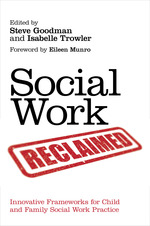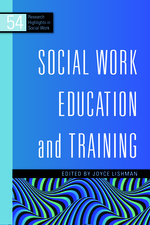“Essentially, RSW frees up social workers to work alongside families to help them change, taking much of the bureaucracy away from social workers. It also acknowledges what a difficult job child and family social work is, particularly in local authority child protection contexts. The Social Work Unit, led by a Consultant Social Worker, brings together a small group of staff to work with families, bringing a range of perspectives and skills to bear on the complex work that needs to be done. It ensures faster work that is more reflective, evidence-based and expert, which achieves good outcomes for children.”









